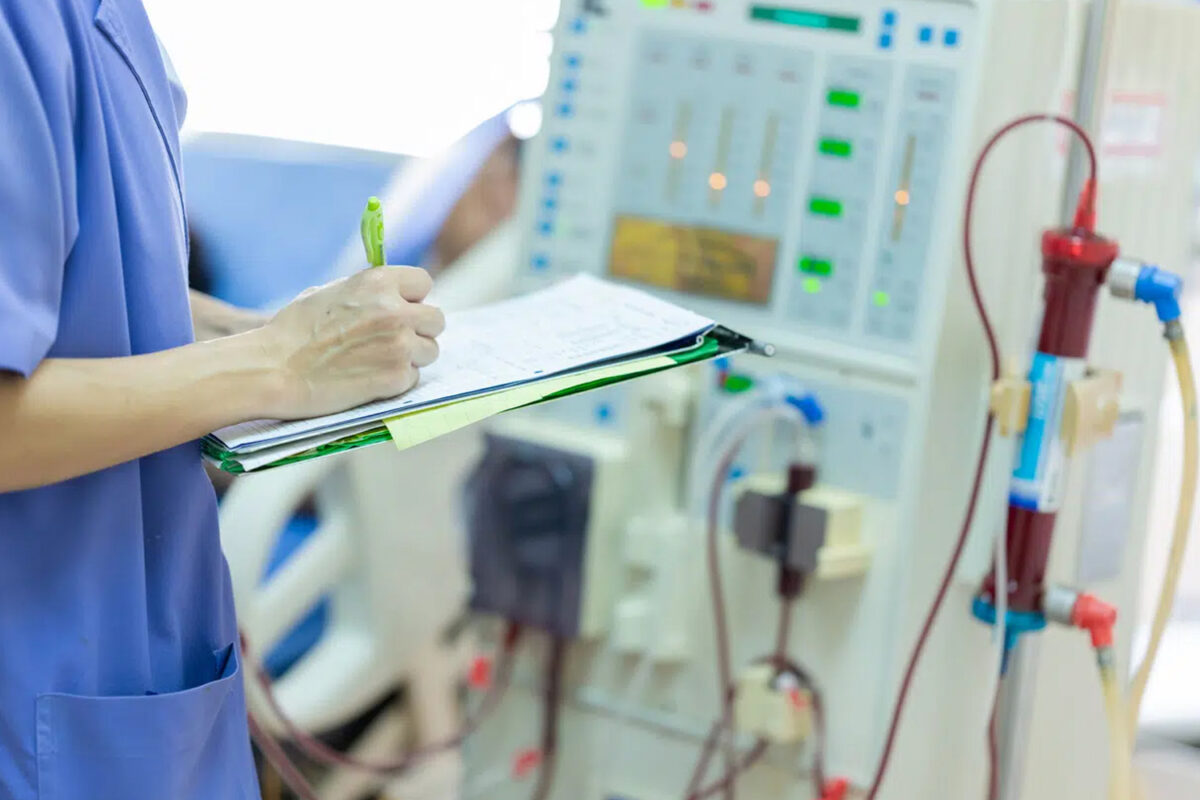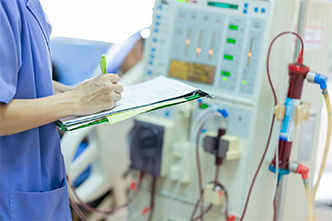
Management in Dialysis
We provide upmost care for hemodialysis and peritoneal dialysis
What is Dialysis?
The purpose of dialysis is to treat people whose kidneys are failing. In kidney failure, the kidneys no longer filter the blood as they should, causing waste products and toxins to build up in the bloodstream. Dialysis removes waste products and excess fluid from the blood by taking over the function of the kidneys, often sending the blood to a machine that cleans it.
Types of Dialysis
- Hemodialysis : This is a procedure in which a machine filters your blood using a dialyzer, a membrane that removes excess fluid and waste. During the procedure, a qualified technician monitors the machine and checks your vital signs. Most people get hemodialysis three to four days a week at a hospital or dialysis clinic.
- Peritoneal dialysis : In peritoneal dialysis, a catheter with a bag containing a dialysis solution is attached to your abdominal wall. The solution flows into the abdominal wall, absorbs waste products and excess fluid, and flows back into the bag. This procedure can be done several times a day at home.
Causes
- Diabetes
- High blood pressure
- Heart disease
- Family history
- Abnormal kidney structure
Symptoms
- Extreme tiredness.
- Nausea and vomiting.
- Confusion or trouble concentrating.
- Swelling (edema) particularly around your hands, ankles or face.
- Peeing more often.
- Muscle Cramps
- Dry or itchy skin.
- Poor appetite or food may taste metallic.
Treatment we provide
- We provide utmost care for hemodialysis and peritoneal dialysis
- Insertion of Double lumen catheters (femoral and IJV – USG guided)
- Peritoneal dialysis (including neonates)
- Category
- Services
- Type of service
- Surgery
- Cost of service
- Starting from $3000

